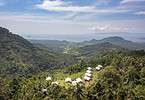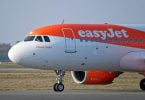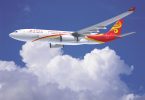Time to Cherish Small- and Medium-Sized Tourism Businesses
The ongoing financial and economic crisis is again threatening the survival of small- and medium-sized enterprises (SMEs) in Asia Pacific’s travel and tourism industry, according to a new study commissioned for ITB Asia by Messe Berlin.
The study, entitled “Strengthening Small- and Medium-sized Enterprises in the Asia Pacific Travel & Tourism Industry,” says that governments should place a higher priority on protecting their most valuable – and most vulnerable – entrepreneurs.
“It is time for some serious soul-searching about ensuring and insuring the future of SMEs in travel and tourism,” warned the study’s author, Imtiaz Muqbil, executive editor of Travel Impact Newswire. He presented the study on October 24 during the ITB Asia B2B travel show in Singapore.
“SMEs are caught in a double-whammy,” he said. “On one hand, they have to work harder to establish themselves, secure business and gain access to finance. On the other, they are the first to be hit by all the forces of evolutionary change plus the unexpected external shocks and crises affecting the industry.
“If they suffer, the markets will just continue to consolidate in the hands of the major companies, which is not in the interest of any country.”
According to the study, travel and tourism SMEs range from small inns and lodges and niche-market tour operators to restaurants, souvenir shops, guides, MICE event organizers, etc. They include small, independently, or family-owned companies and/or small companies set up by groups of friends or partners, many of which are women.
In addition to identifying the size and importance of SMEs in Asia Pacific’s travel and tourism sector, the aim of the study was to underscore the need for them to gain the recognition and respect they deserve.
“It is also critical for SMEs to get organized and make a strong case to governments to have access (to) adequate assistance and support, so as to ensure their progress in good times and their survival when times are bad,” Mr. Muqbil said.
“The aim was also to encourage governments to recognize the importance of travel and tourism SMEs and give them as much priority as SMEs in other economic sectors such as agriculture and manufacturing.”
The study cites the example of technological advances that affect thousands of travel agents when airlines cut commissions, as a result of the advent of direct bookings. This pressure is growing due to the power of alliances, formidable databases, and frequent-flyer programs. At the same time, online websites are gaining strength, as tour operators and their subsidiaries control millions of bookings.
However, technology can become a blessing once SMEs get the hang of it, the study says. Low-cost airlines have proved that an alternative business model, which takes on the major players can succeed even though many expect it to fail. Boutique hotels are also emerging, often set up by people who once worked for the major chains.
Can Virtual Travel Be Real?
Delegates at the ITB Asia Convention found out that Singapore Professor Adrian David Cheok has been living in a strange world. For two years the professor has been working in both Singapore and Japan universities working with virtual applications for the real world.
Mixedrealitylab.org (MXR) at the National University of Singapore is aiming to push the boundaries of research into interactive new media technologies by mixing reality with the virtual world.
Professor Cheok addressed the travel audience in a session on October 24 entitled, “Reality: Virtual, Mixed, or Otherwise – How Technology Will Change the Way We Communicate and Travel in the Future.”
He told the audience that such applications could very soon affect the travel industry. Specifically, virtual technology leaders are already integrating virtual technologies into mobile phones.”
3D-virtual interactive images could also be used in pop-up books and travel guides. A project conducted by the professor in Kyoto has created a tour guide of the city on a mobile phone with interactive information on culture, restaurants, and itineraries. For example, walk up to a restaurant and read food reviews of it on your hand held device.
3D-guiding will also help to create a parallel world at historical sites. Experiments were conducted in Pompeii (Italy) where tourists visiting the famous ruins could see on their laptop or mobile phones people moving in the Roman villas.
MXR works also in more emotional fields such as providing physical contact between people through a virtual world. “For people always on the move, new technologies such as internet or Skype do not transfer real emotions such as physical contact or smells. The use of mixed reality with the virtual world can be a way to provide those physical sensations,” claimed the professor.
Frontiers are being pushed hard. Researchers are working on the possibility of having parents being able to cuddle their children – virtually – through sensorial clothing. “Huggy Pyjama” sends impulses through the web to the child giving the sensation of being cuddled. First results are positive and further research is now being done to bring the sensation of kissing. Will the virtual world one day replace real contacts?
In a moment of old world reality, the professor admitted, “I believe that serendipity moments after a conference or work will never be replaced by virtual experiences.”
Well may be not in our life times.
How Was ITB Asia For You?
“Messe Berlin’s choice of Singapore is very good. We want to target more Asian markets, and we have had excellent contacts with buyers from Australia, China, Indonesia, Malaysia, and Singapore. So far, only 5% of travelers to Oman come from this part of the world. We see great potential for development of these markets over the coming years.”
– Ibrahim Nasser Al-Mahroqi, Ministry of Tourism, Sultanate of Oman
“We had a lot of contact with serious buyers from Australia and the Middle East, as well as India, and I expect that ITB Asia could become a serious competitor to World Travel Market in London for those buyers. ITB Asia in Singapore is easily accessible due to the country’s flexible visa policy.”
– Ralf Zednik, deputy director of sales and marketing, Munich Office of Tourism, Germany
“Messe Berlin’s CEO Raimund Hosch asked us to participate in ITB Asia as we have traditionally had a strong presence in Berlin. He told us that our participation would also attract many buyers and that the show would focus heavily on corporate and MICE markets, our main targets. I can honestly say that we are at least 70% satisfied with the results. We have made a lot of new contacts with small- and medium-sized travel companies that cannot afford to come to Berlin. We think this is good as it helps us to diversify into more regional markets.”
– Andy Tan, regional director of sales & marketing, Starwood Hotels & Resorts, Singapore
“It is a great idea to have a professional show such as ITB in Asia. We feel very positive about the contacts we have made since we have seen strong interest – even from small- and medium-sized travel companies. We had many successful meetings with Australians, Indians, and Middle East buyers. We will definitely be back with the support of SAS Scandinavian Airlines.”
– Kjell Ellefsen, media manager Asia, Scandinavian Tourist Board, Tokyo
“I found the Web in Travel conference very interesting. It provided real added value for all delegates from the region since the topics covered totally responded to Asian-industry needs. The combination of online knowhow at Web in Travel and the ITB trade fair brand were also very complementary. I personally made a lot of contacts, and I will definitely be back next year.”
– Jens Uwe Parkitny, managing director Expedia – Distribution & Media Solutions, Expedia Asia Pacific, Hong Kong
“I am absolutely delighted with the show and particularly the fact that it is a B2B event and focuses on both the meetings and the leisure segments. I thought I might be overly optimistic in hoping to achieve ten good contacts a day but, in the end, we made a total of 110-120 over the three days, of whom about 80-85 really met our needs. At least half of these came from India, which was the key source for us. We are attending an increasing number of fairs like this in the region, but so far this has definitely been the best. And as long as I am in charge of these emerging markets, we will be back every year.”
– Piet Jonckers, area manager intercontinental markets, Tourist Office for Flanders and Brussels, Brussels
“We didn’t take a space for this first ITB Asia edition as we really wanted to evaluate the market and benchmark the interest of Asian travelers. From the experience I got and business contacts I had, I will report to BTM that there is a lot of interest and big potential from Asian markets. They seem to be more resilient than in the USA for example. It would be definitely interesting for us to participate at ITB Asia next year.”
– Jana Wöhlert, director market management, Berlin Tourism Marketing, Berlin
Sports Events Help Tourism to a Podium Finish
Large sports events and their complex relationship with tourism performance came under scrutiny during the ITB Asia Convention in Singapore on October 24.
Ms. Catherine McNabb, director, Strategic Clusters 1, Business Travel & Mice Group, Singapore Tourism Board (STB), told delegates at the session called, “Sports Tourism: The New Engine of Destination Marketing,” that the Singapore Grand Prix, the first night race in F1 history, attracted 100,000 spectators of whom 40,000 were foreign visitors.
She reported that the three-day race and the three-week festival designed around it, which consisted of lifestyle events, attracted an estimated S$100 million in revenue.
Giving the hotelier’s viewpoint, Grahame Carder, vice president of sales and marketing – Asia Pacific Division for Hyatt International, said, “We love sports. We love what it does for our occupancy and revenue.”
He cited the examples of the Beijing Summer Olympics and the F1 night race in Singapore this year.
“For the 2008 Beijing Summer Olympic Games, our occupancy increased by 90 percent, and revenue per occupied room was up 600 percent. During the F1 Singapore Grand Prix, occupancy increased by 80-90 percent while revenue per occupied room rose 400 percent,” he said.
Australia has a history of leveraging large sports events for tourism purposes.
Ms. Maggie White, Tourism Australia’s general manager for South/Southeast Asia and Gulf Countries said that hosting the Melbourne 1956 and Sydney 2000 Olympics provided Australia with far-reaching opportunities. Apart from showcasing Australia to the world, the Olympics left a legacy of expertise in sports-tourism related fields, as well as promoting Australia as a world-class sporting venue.
There is a marketing effect through the word-of-mouth recommendations of attendees at the event. The impact is greater if the event attracts widespread media interest, especially live television coverage.
As an example, the Gold Coast Marathon in 2000 was deliberately designed to showcase Australia’s premier beach destination, with parts of the track running right beside Surfers Paradise beach.
Mobile Technology Ready to Transform Corporate Travel
Mobile technology is set to transform the entire travel experience for business travelers.
This was the message given to the participants in an October 24 ITB Asia Convention session on ACTE Travel Technology by Mr. Jeremy Findley, head of business development Asia-Pacific for Concur, a leading provider of on-demand Employee Spend Management services.
“Mobile technology will revolutionize business travel, allowing travelers to book and amend flights and make hotel reservations, as well as complete expense forms while on the road, thereby increasing their flexibility, welfare, and productivity,” said Mr. Findley.
“Mobile travel technology can also provide travelers with other time-saving features, such as flight check-in, virtual room keys, and electronic boarding passes sent directly to their mobile device,” he said.
As a result, employees will need to spend less time on travel-related tasks in the office, instead performing them while traveling. Implemented across the entire business, these functions will deliver substantial cost savings for companies through increased productivity and efficiency.
Mobile technology will help the corporate travel manager meet travel policy requirements, delivering improvements in employee security during business trips.
Up-to-the-minute security alerts or warnings about delays or disasters that might affect corporate travelers can be automatically sent via simple, timely SMS text messages. And travel managers will, at the same time, be able to track employees using GPS systems, enabling them to account for all their staff in the event of an emergency.
Mobile technology will also help travel managers promote policy compliance while on the road. In the case of a cancelled flight, employees will be able to access approved supplier lists, ensuring that they follow company policy rather than choosing costly alternatives and thus further reducing company costs.
Mr. Findley highlighted the importance of travel managers consulting the IT and HR departments within their companies to introduce a mobile strategy into their travel management programs and take advantage of current and future offerings.
While travel managers are aware of these benefits, they have so far made little progress in implementing changes. Some 80 percent acknowledge the role of mobile phones with enhanced features to improve corporate travel but, despite this, very few have integrated these services into their travel programs.
“The benefits of mobile technology are already significant – from increasing traveler productivity to improving safety and tracking staff. But it has the potential to totally transform corporate travel – not just for the business traveler, but also the corporate travel manager.”
Travel Agents Face Turbulence Along With Airlines
Fuel costs, credit crunches, open skies, blurring frontiers between the types of air travelers, and airline business models – the airline industry is in a state of severe flux.
Travel agencies are no better off, according to Mr. Gerry Oh, vice president Southeast Asia and Australia for Jet Airways (India). Addressing the ITB Asia Convention aviation forum on October 24, he said, “If times are tough for airlines, they are even tougher for travel agents. We have seen over the last twenty years, a complete shift in booking channels – the rise of internet and online services, such as online travel agents, and a rapid decrease of the travel agencies’ market share.”
He said airlines are especially pushing e-booking through their websites as it helps them lower their distribution costs. It also gives them direct contact with their customers. Travel agencies will have no other choice than to redefine their activities by becoming highly specialized. “There will still be niches for travel agents such as setting up multi-destination itineraries, group packages, dynamic travel packaging, and corporate travel, all of which require expertise,” said Mr. Oh.
Indonesia’s New Focus on Marine and MICE Tourism
Indonesia’s tourism industry remains confident, according to I.Gede Pitana, director of international promotion at the Indonesia’s Ministry of Culture and Tourism.
He told a ITB Asia press conference on October 24 in Singapore, “The [global financial] crisis will probably affect our target of seven million international travelers this year. However, we should still be able to achieve a growth of over 20 percent with 6.5 to 6.7 million tourists.”
Mr. Pitana said that Indonesia had invested a lot in new infrastructure and these efforts were starting to pay off. He cited close to 11,500 classified hotels with over 255,000 rooms, 10 world-class convention centers – each able to receive up to 5,000 delegates, and 450 first-class shopping centers, which make the country an attractive destination for Singaporeans, Chinese, or Malaysians.
The Indonesian government will extend its Visit Indonesia Year 2008 campaign into 2009. However, new promotions will be more centered on marine and MICE tourism. “We have a unique natural and historical heritage. We have, over the years, gained recognition from the scuba dive market for our exceptional coral reefs. We also have over 50 national parks and nine UNESCO listed-world heritage sites,” said Mr. Pitana.
The tourism director also said that Indonesia is not only Bali. He beseeched the tourism industry, “Look beyond Bali please, and discover the amazing diversity of our land.”
About ITB Asia
ITB Asia is taking place for the first time at Suntec Singapore on October 22-24, 2008. It is organized by Messe Berlin (Singapore) Pte, Ltd. in conjunction with the Singapore Tourism Board. The event features more than 650 exhibiting companies from the Asia-Pacific region, Europe, the Americas, Africa, and the Middle East, covering not only the leisure market, but also corporate and MICE travel. It includes exhibition pavilions and tabletop presence for small- and medium-sized enterprises (SMEs) providing travel services. Exhibitors from every sector of the industry, including destinations, airlines and airports, hotels and resorts, theme parks and attractions, inbound tour operators, inbound DMCs, cruise lines, spas, venues, other meeting facilitie and travel technology companies are all attending.






















